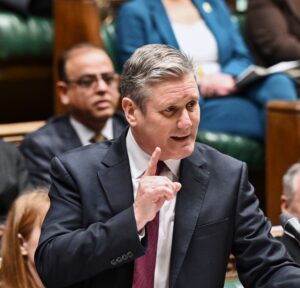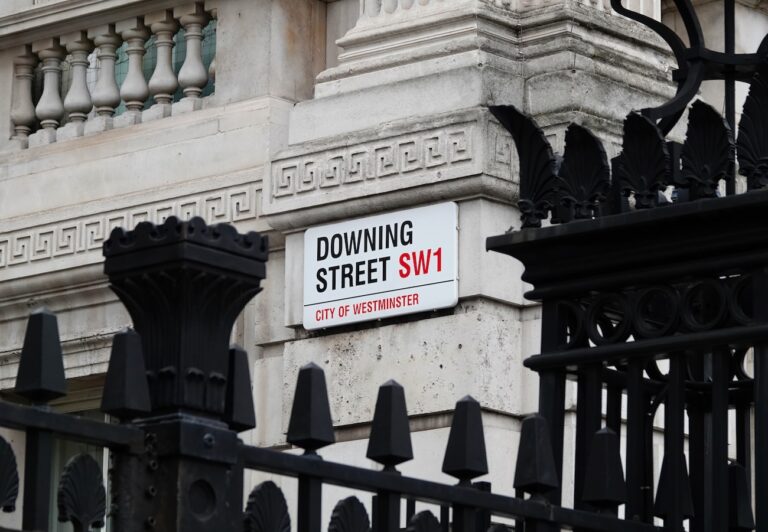Well, it was inevitable, we all knew what the result would be, but we had to wait 6 weeks for it to be made official. The Labour Party has clinched a decisive victory in the recent UK election, ushering in a new era under the leadership of Keir Starmer. This resounding win marks a  significant shift in the political landscape, reflecting the electorate’s desire for change and renewal. As the dust settles on the election aftermath, Starmer’s new Labour government faces the formidable task of translating their mandate into tangible progress and addressing the myriad challenges that lie ahead.
significant shift in the political landscape, reflecting the electorate’s desire for change and renewal. As the dust settles on the election aftermath, Starmer’s new Labour government faces the formidable task of translating their mandate into tangible progress and addressing the myriad challenges that lie ahead.
The nation looks to Starmer and his team with a mixture of hope and expectation. From revitalising the economy to addressing pressing social issues, the new administration’s agenda is brimming with ambitious goals. Key among these is fostering a business-friendly environment that promotes sustainable growth and innovation. Prominent business leaders from across the UK share their perspectives on what this new leadership means for the economic landscape and the steps they believe are crucial for a prosperous future.
George Lagarias, Chief Economist at Mazars:
“Elections often hold surprises, but this British general election did not. Labour’s significant majority was expected, and market reactions were muted. The real challenge now lies in mending fractured relations with the EU and addressing growth. Investors are keen to see a structured plan for governing, beyond campaign promises.”
Simon Massey, Managing Partner at Menzies:
“The business community needs certainty and meaningful policy. The new Business Secretary must focus on international trade, new grants, and tax breaks to drive investment. Transparent and consistent policies are crucial for fostering innovation and growth.”
Sara Brigden, Managing Director at Forrest Brown:
“An industrial strategy with innovation at its heart is key to Labour’s vision of ‘national renewal.’ Setting ambitious R&D investment targets and providing stability through R&D tax incentives will encourage private sector innovation and attract inward investment.”
Mark Sweeny, CEO of de Novo Solutions:
“As a small business owner, I want forward-looking policies that foster innovation and immediate impact. Key issues include ensuring timely payments for SMEs, repealing unhelpful legislation like IR35, investing in education, and addressing R&D tax credits.”
Jonathan Evans, CEO of Discovery:
“Small businesses are the engine room of the UK economy. The Labour government must ensure businesses can thrive by lowering taxes and fostering growth. There is concern over the lack of detail in Labour’s plans, and I remain cautious about future investments.”
Mike Randall, CEO of Simply Asset Finance:
“The new government must act swiftly to keep the UK recovery on track. Ensuring SMEs can drive productivity and growth is essential. Immediate actions on late payments, planning reforms, and capital allowances are crucial, as well as innovative financing solutions.”
Alan Price, CEO at BrightHR:
“Labour’s victory brings significant changes in employment law and workplace reform. Business owners need to review and adapt their policies to meet new worker rights and transparency requirements. Efficient HR processes and automation will be vital for a smooth transition.”
Tina McKenzie, Policy Chair of the Federation of Small Businesses (FSB):
“Congratulations to the new Prime Minister and Government on their decisive election victory. The clear result gives hope that political stability can lead to economic stability and recovery. There’s a golden chance in the first 100 days to plant the seeds of small business growth. Policies should ease the cost of doing business and support investment and expansion. The King’s Speech should include a Small Business Bill to support small firms and the self-employed. Supporting small businesses is good for jobs, communities, and the whole economy.”
After a whirlwind six-week campaign, the Labour Party has secured their long-anticipated victory and will form the next UK Government. The election win brings both opportunity and challenge, and the new administration’s ability to deliver on their ambitious promises will be closely watched by all sectors of society. As the country looks ahead, the expectations are high for a government that can turn words into effective action and drive the UK towards a prosperous future.
On a final note, I still do wonder what motivated Rishi Sunak to go to the polls earlier than he needed to. It was unexpected and the majority of political commentators were surprised at the timing – what did he know that we didn’t? Maybe, once he has left his role as leader of the Conservatives, we will get an answer.


